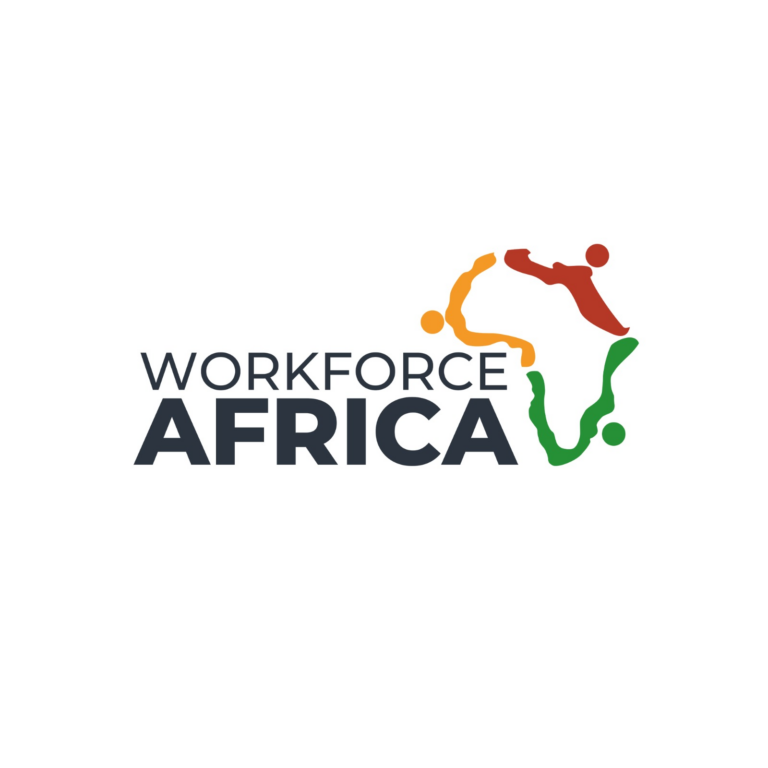Proven strategies on how offshore teams in Africa drive business success

This article is a submission by Workforce Africa. Workforce Africa specializes in managed teams, offering professional, innovative, and comprehensive solutions for African expansion and talent needs.
“In today’s competitive global marketplace, businesses are constantly seeking ways to gain a strategic edge. One increasingly effective approach is building offshore teams—a practice that not only fills skill gaps but also brings fresh perspectives and enhances operational efficiency.”
Africa is emerging as a prime destination for offshore teams, offering a cost-effective, skilled, and diverse workforce that can drive business growth. Leveraging African talent allows companies to extend their workday across different time zones, access a broader talent pool, and optimize costs.
This article explores how offshoring to Africa can be a game-changing strategy for businesses worldwide, enabling them to maximize efficiency, enhance collaboration, and propel long-term success.
Building synergy: The power of collaboration in offshore teams
Successfully offshoring teams in Africa is not just about finding skilled professionals—it’s about fostering collaboration, innovation, and seamless integration into existing business operations.

Why team synergy matters
African offshore teams can become powerful extensions of an organization when provided with the right structure, communication tools, and leadership support.
To achieve this, businesses must:
- Implement clear communication channels. Regular video conferencing, real-time project management tools, and detailed documentation help keep offshore teams aligned with business goals.
- Foster a culture of mutual respect. Encouraging open dialogue, valuing diverse perspectives, and integrating offshore teams into company culture enhances engagement and productivity.
- Leverage diversity for innovation. African teams bring unique viewpoints that can enrich problem-solving, drive creative solutions, and lead to more dynamic business strategies.
A well-coordinated offshore team isn’t just about extending working hours. It’s about creating a strategic partnership that fuels sustainable business growth.
Expanding capabilities: The strength of African talent pools
Africa is home to a rapidly growing and highly skilled workforce, spanning multiple industries such as technology, finance, customer service, and creative services.
Why offshore to Africa?
- Addressing skill gaps: Africa provides access to professionals in high-demand fields such as software development, data analytics, and digital marketing.
- Competitive rates: Companies can optimize labor costs without compromising on quality.
- Innovation through diversity: Exposure to varied cultural perspectives fosters new approaches to existing business challenges.
- Scalability: Businesses can expand their offshore teams as needed, ensuring flexibility and adaptability.
By strategically leveraging Africa’s talent pools, businesses can significantly extend their capabilities and strengthen their global market presence.
The rising impact of Africa’s offshore market: Key statistics and industry growth
Africa’s offshore outsourcing market is experiencing rapid growth, with projections indicating a significant increase in global offshoring investments.
According to a 2023 report by the African Development Bank (AfDB), Africa’s digital outsourcing industry is expected to reach $15 billion by 2025, driven by high-quality, cost-effective talent.
Additionally, a McKinsey & Company study found that companies outsourcing to Africa save up to 60% in labor costs compared to Western markets, while still maintaining quality standards.
Furthermore, countries like Nigeria, Kenya, and South Africa are becoming outsourcing hotspots, with South Africa ranking among the top 20 global outsourcing destinations, according to the 2021 AT Kearney Global Services Location Index.
The continent’s youthful population (over 60% under the age of 25) and increasing internet penetration (43% as of 2023) make it an attractive option for businesses looking to scale efficiently while tapping into a growing, tech-savvy workforce.
These statistics reinforce the strategic advantage of offshoring to Africa, proving that businesses investing in the region can expect long-term cost savings, operational efficiency, and access to high-caliber talent.
Driving business growth: Offshore teams as a strategic asset
Beyond cost savings and operational efficiency, offshore teams in Africa play a pivotal role in business expansion and innovation.
Key growth benefits of offshoring to Africa
- Enhanced productivity: Offshore teams extend the workday, enabling continuous project development and faster turnaround times.
- Access to global markets: The diverse perspectives of African professionals help businesses develop products that resonate with a broader international audience.
- Cost optimization: Companies can reinvest savings from offshore hiring into R&D, product development, and market expansion.
- Scalability and agility: Businesses can quickly scale teams up or down based on evolving needs.
By treating offshore teams as critical assets, companies can unlock a competitive advantage and position themselves for long-term success.
Maximising offshore success: Key strategies for optimising African teams
To fully leverage the benefits of offshore teams in Africa, businesses need a well-defined strategy.
Here’s how to make it work:
1. Define business needs and goals
- Identify key roles and skills required.
- Align offshore hiring with long-term business objectives.
2. Cultivate a partnership mindset
- Build strong relationships with offshore teams through regular communication and collaboration.
- Foster a sense of shared purpose and integrate offshore employees into company culture.
3. Leverage technology for seamless integration
- Use project management tools, video conferencing, and collaboration software to bridge the gap between onshore and offshore teams.
- Provide necessary training to ensure smooth onboarding and workflow integration.
4. Establish performance metrics and feedback systems
- Define clear KPIs to measure offshore team performance.
- Encourage continuous learning and offer growth opportunities to enhance team motivation and efficiency.
5. Adapt and evolve
- Continuously evaluate team structure, skill sets, and technological adoption.
- Adjust strategies based on changing business needs and market conditions.
By implementing these strategies, businesses can move beyond just hiring offshore teams. They can create a robust, high-performing workforce that drives sustained growth and innovation.
Overcoming challenges: Ensuring seamless offshore integration
While offshoring to Africa offers numerous benefits, successful integration requires addressing key challenges proactively.
Common challenges and how to overcome them
- Communication barriers
Solution: Use structured communication tools, set clear expectations, and schedule regular team check-ins.
- Cultural differences
Solution: Implement cultural awareness training and encourage knowledge-sharing between onshore and offshore teams.
- Time zone coordination
Solution: Schedule overlapping work hours for key discussions and ensure transparent workflows for tasks handled asynchronously.
- Building trust and engagement
Solution: Promote team-building activities, recognize offshore contributions, and create a collaborative work culture.
By proactively addressing these integration challenges, businesses can build strong, cohesive offshore teams that operate as seamless extensions of their core workforce.

The future of offshoring to Africa
In today’s fast-evolving business landscape, offshore teams in Africa are no longer just an option—they are a strategic necessity. Companies that successfully integrate African talent into their operations will benefit from enhanced efficiency, cost savings, innovation, and global market expansion.
Africa’s growing skilled workforce, competitive pricing, and strong government support make it one of the most promising destinations for offshore teams.
Businesses that act now and invest in African offshore talent will position themselves for long-term success in an increasingly interconnected world.







 Independent
Independent




